Julius caesar

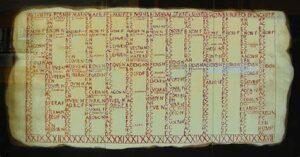 As we move into the new year, we begin to think about how long the year seems…until we look at the year’s end speedily approaching. Then, we realize just how short the year really was, but what if there was a strange “time paradox” that disrupted the “space-time continuum” that we were told about in the movie, Back to the Future? Well, I don’t know if such a “time paradox” could really exist, but in the year 46BC, Julius Caesar did cause a type of disruption in the “space-time continuum” when he decided to revamp the human calendar. Of course, the days went on as usual, but the names of things and the way we looked at them changed. Now, for those of you who hate the whole biannual time change thing…well, this would really blow your body’s natural rhythms out of the water.
As we move into the new year, we begin to think about how long the year seems…until we look at the year’s end speedily approaching. Then, we realize just how short the year really was, but what if there was a strange “time paradox” that disrupted the “space-time continuum” that we were told about in the movie, Back to the Future? Well, I don’t know if such a “time paradox” could really exist, but in the year 46BC, Julius Caesar did cause a type of disruption in the “space-time continuum” when he decided to revamp the human calendar. Of course, the days went on as usual, but the names of things and the way we looked at them changed. Now, for those of you who hate the whole biannual time change thing…well, this would really blow your body’s natural rhythms out of the water.
It seems rather pretty egotistical to just randomly decide that you needed to change up a whole year, and then name the whole thing after yourself to boot, but the Julius Caesar truly thought of himself as a sort of god, I think. It’s not that the pre-Julian Roman calendar didn’t have its problems, because it did, and maybe Caesar thought he was doing a good thing. Still, in the end, the whole maneuver that occurred in the time frame progressing from 46BC to 45BC (note that until Jesus was born, the time was listed as BC, Before Christ and basically went backward. After his birth, time began to go forward, 1AD, 2AD, 3AD, etc. The term anno Domini is Medieval Latin and means “in the year of the Lord” or the year Christ was born.) caused a good bit of confusion…the kind of confusion that would make the time change seem totally insignificant.
The calendar the Romans used were not without fault. The Romans had to periodically add a leap month every few years to keep the calendar year in sync with the solar year. Unfortunately, they had missed a few with the chaos of the civil wars of the late republic. Now if you think the time change is odd, imagine having July suddenly be in the middle of winter in the northern hemisphere. That’s what was happening due to the missed additional leap months that were not happening. The calendar was obviously not well planned. So, to fix things, Caesar chose to take one year, and make a number of drastic changes designed to “get things back on track” once and for all. Nicknamed “the Year of the Consulship of Caesar and Lepidus” or the year of confusion, 46BC had two extra leap months inserted by Julius Caesar. This was in order to make his newly formed Julian Calendar match up with the seasonal year. In the end, 46BC was 445 days long and is the longest year in human history. Julius Caesar added Mercedonius (23 days) and two other intercalary months (33 and 34 days respectively) to the 355-day lunar year, to recalibrate the calendar in preparation for his calendar reform, which went into effect in 45 BC. Of course, the actual planetary orbit-year remained the same. He couldn’t change that. There were still problems with the calendar, but they probably weren’t quite as significant as the old Roman calendar, which required a manual reset of the year periodically.
The Julian Calendar would remain the standard in the western world for over 1600 years, until superseded by the Gregorian Calendar in 1582. The Gregorian calendar that is still widely used today. It is a solar calendar that was first introduced in 1582 by the Catholic Church and replaced the Julian calendar. The Gregorian 
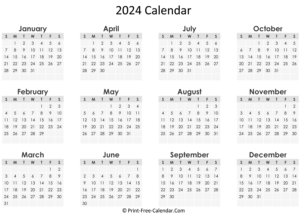 calendar is used for non-religious administration around the world and has been adopted by 168 countries as their official calendar. The principal change was to space leap years differently so as to make the average calendar year 365.2425 days long. For church functions, the church calendar is in place, and the Jewish people use the Hebrew calendar. I’m sure there are nations that use some other form of calendar, but the Gregorian calendar seems to keep the seasons aligned with the calendar pretty well.
calendar is used for non-religious administration around the world and has been adopted by 168 countries as their official calendar. The principal change was to space leap years differently so as to make the average calendar year 365.2425 days long. For church functions, the church calendar is in place, and the Jewish people use the Hebrew calendar. I’m sure there are nations that use some other form of calendar, but the Gregorian calendar seems to keep the seasons aligned with the calendar pretty well.
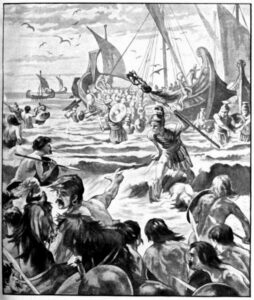
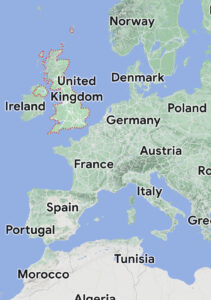 Before Julius Caesar invaded Britain, many Romans didn’t believe it existed. Julius Caesar was the first-ever Roman to invade Britain. He did it twice in the years 55 and 54 BC. Some Romans believed Britain to be just the foot of another huge northern continent. Others thought it was a place full of unbelievable riches, whilst most thought it just didn’t exist.
Before Julius Caesar invaded Britain, many Romans didn’t believe it existed. Julius Caesar was the first-ever Roman to invade Britain. He did it twice in the years 55 and 54 BC. Some Romans believed Britain to be just the foot of another huge northern continent. Others thought it was a place full of unbelievable riches, whilst most thought it just didn’t exist.
In the course of his Gallic Wars, Julius Caesar invaded Britain twice: in 55 and 54 BC. On the first occasion Caesar took with him only two legions and achieved little beyond a landing on the coast of Kent. The second invasion consisted of 628 ships, five legions and 2,000 cavalry. The Roman legion is the largest military unit of the Roman army,  comprised 5,200 infantry and 300 equites (cavalry) in the period of the Roman Republic (509 BC–27 BC) and 5,600 infantry and 200 auxilia in the period of the Roman Empire (27 BC – AD 476). Caesar’s force was so overwhelming that the Britons did not dare contest Caesar’s landing in Kent, waiting instead until he began to move inland. Caesar’s forces eventually made their way into Middlesex and crossed the Thames, forcing the British warlord Cassivellaunus to surrender, after which Caesar set up Mandubracius of the Trinovantes as client king, basically a sub king. As with all conquerors, Caesar included the accounts of both invasions in his Commentarii de Bello Gallico, with the first significant first-hand description of the people, culture, and geography of the island.
comprised 5,200 infantry and 300 equites (cavalry) in the period of the Roman Republic (509 BC–27 BC) and 5,600 infantry and 200 auxilia in the period of the Roman Empire (27 BC – AD 476). Caesar’s force was so overwhelming that the Britons did not dare contest Caesar’s landing in Kent, waiting instead until he began to move inland. Caesar’s forces eventually made their way into Middlesex and crossed the Thames, forcing the British warlord Cassivellaunus to surrender, after which Caesar set up Mandubracius of the Trinovantes as client king, basically a sub king. As with all conquerors, Caesar included the accounts of both invasions in his Commentarii de Bello Gallico, with the first significant first-hand description of the people, culture, and geography of the island. 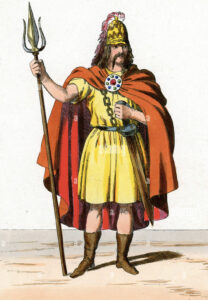
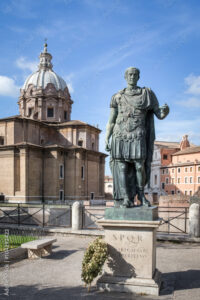 Caesar’s writings are thought to be the start of the written history or at least the protohistory of Britain.
Caesar’s writings are thought to be the start of the written history or at least the protohistory of Britain.
It seems odd to me to think that people could simply not think that Britain exists, but I suppose that in a huge part of our world’s history, and actually still with some people today, it was thought that the Earth is flat, meaning that the horizon we see is all there is. If that is your mindset, it would be easy to limit the Earth to the horizon we can see, but it would not be an assumption that would be based on fact. Now with satellites and airplanes we know that the Earth is definitely round, just like the Bible and most people have said. And that said, we know that Britain existed long before the men of Caesar’s time found and invaded.

